Mercedes E Class vs Peugeot 408 – Performance, range & efficiency compared
Everyday use, family trips or long-distance drives – here’s where the differences show.
Discover whether Mercedes E Class or Peugeot 408 fits your lifestyle better.
Costs and Efficiency:
When it comes to price and running costs, the biggest differences usually appear. This is often where you see which car fits your budget better in the long run.
Peugeot 408 has a significantly advantage in terms of price – it starts at 35100 £, while the Mercedes E Class costs 50500 £. That’s a price difference of around 15373 £.
Fuel consumption also shows a difference: Peugeot 408 manages with 0.90 L and is therefore clearly more efficient than the Mercedes E Class with 1.50 L. The difference is about 0.60 L per 100 km.
As for range, the Peugeot 408 performs significantly better – achieving up to 453 km, about 337 km more than the Mercedes E Class.
Engine and Performance:
Power, torque and acceleration say a lot about how a car feels on the road. This is where you see which model delivers more driving dynamics.
When it comes to engine power, the Mercedes E Class has a decisively edge – offering 585 HP compared to 225 HP. That’s roughly 360 HP more horsepower.
In acceleration from 0 to 100 km/h, the Mercedes E Class is convincingly quicker – completing the sprint in 4 s, while the Peugeot 408 takes 7.20 s. That’s about 3.20 s faster.
In terms of top speed, the Mercedes E Class performs hardly perceptible better – reaching 250 km/h, while the Peugeot 408 tops out at 233 km/h. The difference is around 17 km/h.
There’s also a difference in torque: Mercedes E Class pulls significantly stronger with 750 Nm compared to 360 Nm. That’s about 390 Nm difference.
Space and Everyday Use:
Cabin size, boot volume and payload all play a role in everyday practicality. Here, comfort and flexibility make the difference.
Both vehicles offer seating for 5 people.
In curb weight, Peugeot 408 is to a small extent lighter – 1544 kg compared to 1810 kg. The difference is around 266 kg.
In terms of boot space, the Mercedes E Class offers barely noticeable more room – 540 L compared to 536 L. That’s a difference of about 4 L.
When it comes to payload, Mercedes E Class evident takes the win – 640 kg compared to 456 kg. That’s a difference of about 184 kg.
Who wins the race?
The Mercedes E Class proves to be wins the duel decisively and therefore becomes our DriveDuel Champion!
Mercedes E Class is the better all-rounder in this comparison.
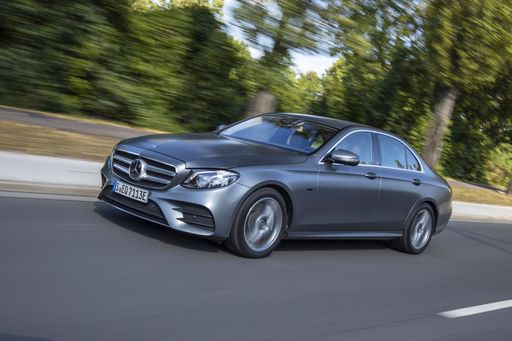
Mercedes E Class
Mercedes E Class
The Mercedes-Benz E-Class Saloon epitomises sophistication and innovation, offering a seamless blend of elegant design and cutting-edge technology. Its refined interior ensures exceptional comfort, making every journey a luxurious experience. The driving dynamics are impressively balanced, providing both agility and smoothness, perfect for both city driving and long-distance cruising.
details @ group-media.mercedes-benz.com
@ group-media.mercedes-benz.com
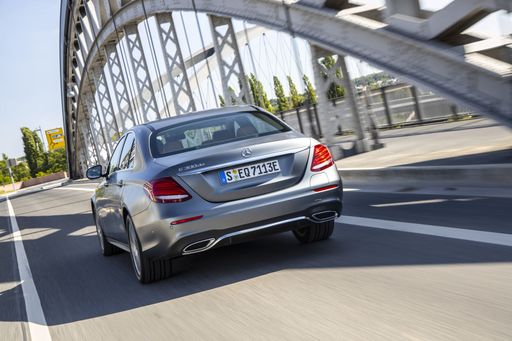 @ group-media.mercedes-benz.com
@ group-media.mercedes-benz.com
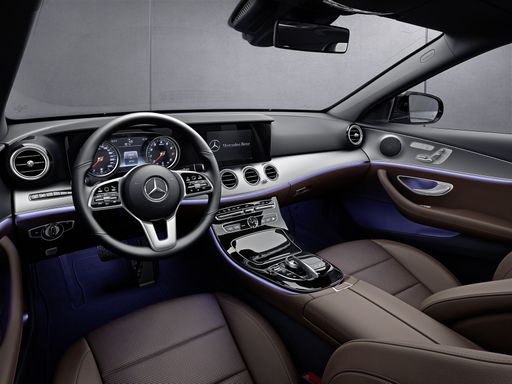 @ group-media.mercedes-benz.com
@ group-media.mercedes-benz.com
Peugeot 408
The Peugeot 408 captivates with its sleek and dynamic design, setting it apart in the competitive crossover market. Its interior offers a perfect blend of comfort and cutting-edge technology, creating an enjoyable driving experience. The model's efficient performance and modern features make it a compelling choice for those seeking both style and functionality in their vehicles.
details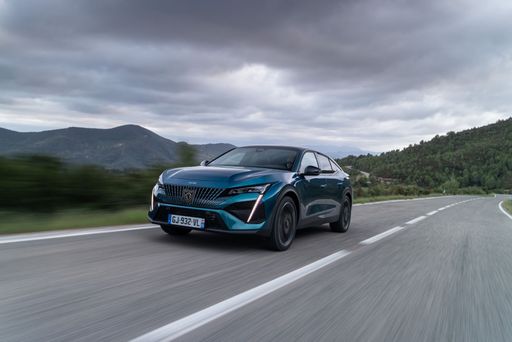 @ media.stellantis.com
@ media.stellantis.com
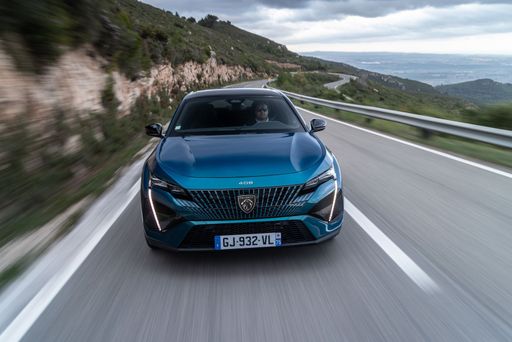 @ media.stellantis.com
@ media.stellantis.com
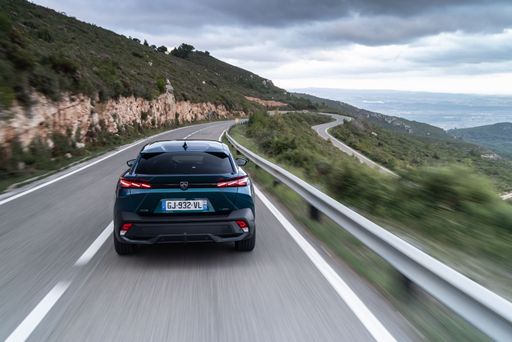 @ media.stellantis.com
@ media.stellantis.com
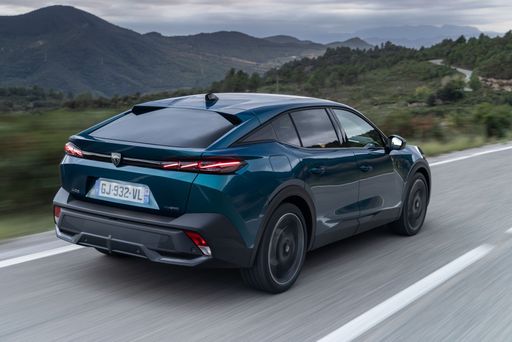 @ media.stellantis.com
@ media.stellantis.com
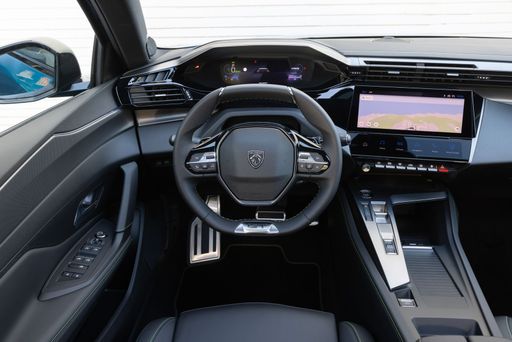 @ media.stellantis.com
@ media.stellantis.com

|

|
|
|
|
Costs and Consumption |
|
|---|---|
|
Price
50500 - 119700 £
|
Price
35100 - 44400 £
|
|
Consumption L/100km
1.5 - 7.5 L
|
Consumption L/100km
0.9 - 5.1 L
|
|
Consumption kWh/100km
-
|
Consumption kWh/100km
15.10 kWh
|
|
Electric Range
101 - 116 km
|
Electric Range
77 - 453 km
|
|
Battery Capacity
21.20 kWh
|
Battery Capacity
58.20 kWh
|
|
co2
39 - 172 g/km
|
co2
0 - 114 g/km
|
|
Fuel tank capacity
50 - 66 L
|
Fuel tank capacity
42 - 52 L
|
Dimensions and Body |
|
|---|---|
|
Body Type
Sedan
|
Body Type
SUV
|
|
Seats
5
|
Seats
5
|
|
Doors
4
|
Doors
5
|
|
Curb weight
1810 - 2390 kg
|
Curb weight
1544 - 1879 kg
|
|
Trunk capacity
370 - 540 L
|
Trunk capacity
471 - 536 L
|
|
Length
4949 - 4959 mm
|
Length
4687 mm
|
|
Width
1880 mm
|
Width
1848 mm
|
|
Height
1468 - 1480 mm
|
Height
1478 mm
|
|
Max trunk capacity
-
|
Max trunk capacity
1528 - 1583 L
|
|
Payload
530 - 640 kg
|
Payload
371 - 456 kg
|
Engine and Performance |
|
|---|---|
|
Engine Type
Petrol MHEV, Plugin Hybrid, Diesel MHEV
|
Engine Type
Electric, Petrol MHEV, Plugin Hybrid
|
|
Transmission
Automatic
|
Transmission
Automatic
|
|
Transmission Detail
Automatic Gearbox
|
Transmission Detail
Dual-Clutch Automatic
|
|
Drive Type
Rear-Wheel Drive, All-Wheel Drive
|
Drive Type
Front-Wheel Drive
|
|
Power HP
186 - 585 HP
|
Power HP
145 - 225 HP
|
|
Acceleration 0-100km/h
4 - 8.5 s
|
Acceleration 0-100km/h
7.2 - 9.4 s
|
|
Max Speed
222 - 250 km/h
|
Max Speed
160 - 233 km/h
|
|
Torque
320 - 750 Nm
|
Torque
230 - 360 Nm
|
|
Number of Cylinders
4 - 6
|
Number of Cylinders
4
|
|
Power kW
137 - 430 kW
|
Power kW
107 - 165 kW
|
|
Engine capacity
1993 - 2999 cm3
|
Engine capacity
1199 - 1598 cm3
|
General |
|
|---|---|
|
Model Year
2024 - 2025
|
Model Year
2024 - 2025
|
|
CO2 Efficiency Class
E, F, B, D
|
CO2 Efficiency Class
A, C, B
|
|
Brand
Mercedes-Benz
|
Brand
Peugeot
|
Is the Mercedes E Class offered with different drivetrains?
The Mercedes E Class is offered with Rear-Wheel Drive or All-Wheel Drive.
The prices and data displayed are estimates based on German list prices and may vary by country. This information is not legally binding.
